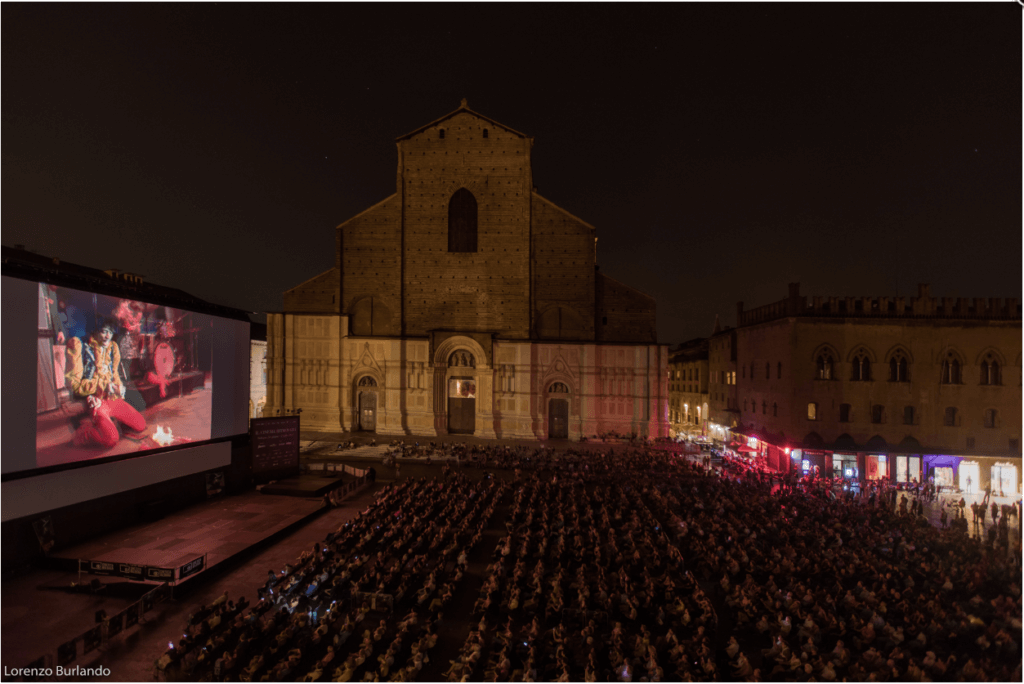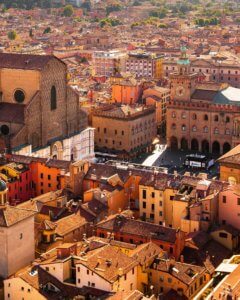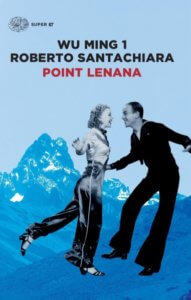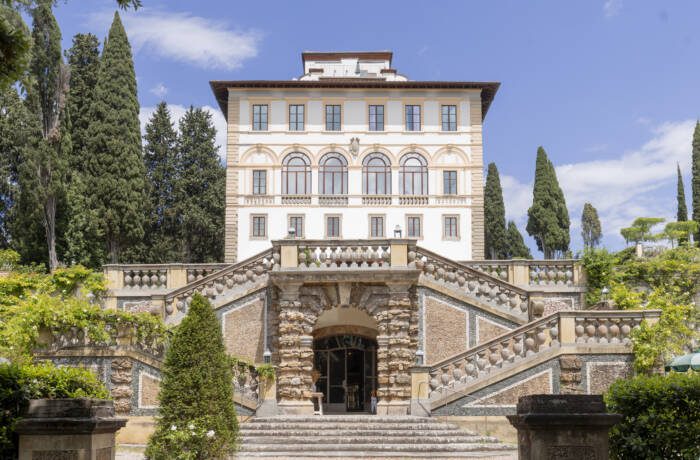
Il Cinema Ritrovato. Image by Lorenzo Burlando
LUX’s Contributing Poet, Rhiannon Williams finds herself treading the path of heroic visionary poets through Italy, and discovers the illusive poetry collective crafting the ‘New Italian Epic’

Bologna by digital artist Dorpell
Italy has a bacchanal reputation for being the traditional haunt of heroic visionaries. Seen by Byron as ‘the garden of the world’ the number of illustrious writers who have graced the land is truly astonishing, and render it a top destination for any poetic pilgrimage today. The soft touch of history, the clean open spaces and balm of an impractical beauty have a lot to offer. But what I also realised, travelling through Como, Milan, Parma, Bologna and Florence this summer, is that the effect of the ancient poets upon the young poets working here today is far more profound than many realise. How do the contemporary generation feel able to compete? One might assume that the long tradition of luminaries in whose shadow any young Italian poet these days will find themselves might intimidate. The opposite in fact appears to be true; instead of hindering, the rich history only enhances the inspirations and aspirations of the next generation.
Follow LUX on Instagram: the.official.lux.magazine
 Wu Ming (无名) is the name of a rousing poetry collective and occasional punk-rock band based in Bologna, Italy who are demonstrating how cutting edge Italian poetry is still at the forefront today, despite being some fifty years after the neoavanguardia movement of the 1960s which was the era of the avant-garde Italian literary elite. The pseudonym for the five poets, ‘Wu Ming’, can mean different things in Chinese; either anonymous or five people, depending on the tone of the first syllable. This perfectly encompasses the vision of these poets, because in its emphasis upon anonymity ‘Wu Ming’ is a purposeful rejection of the cult of celebrity that can surround literary stars, a philosophy very much in line with the collective’s growing reputation of being challengers of long-existing paradigms and traditions. The group justify their mysterious façade (each of the poets are known only by the names ‘Wu Ming 1, 2, 3, 4 and 5’ and refuse to have photographs taken) with the unusual stance that ‘Once the writer becomes a face… it’s a cannibalistic jumble: a photo paralyses me, it freezes my life into an instant, it negates my ability to transform into something else’.
Wu Ming (无名) is the name of a rousing poetry collective and occasional punk-rock band based in Bologna, Italy who are demonstrating how cutting edge Italian poetry is still at the forefront today, despite being some fifty years after the neoavanguardia movement of the 1960s which was the era of the avant-garde Italian literary elite. The pseudonym for the five poets, ‘Wu Ming’, can mean different things in Chinese; either anonymous or five people, depending on the tone of the first syllable. This perfectly encompasses the vision of these poets, because in its emphasis upon anonymity ‘Wu Ming’ is a purposeful rejection of the cult of celebrity that can surround literary stars, a philosophy very much in line with the collective’s growing reputation of being challengers of long-existing paradigms and traditions. The group justify their mysterious façade (each of the poets are known only by the names ‘Wu Ming 1, 2, 3, 4 and 5’ and refuse to have photographs taken) with the unusual stance that ‘Once the writer becomes a face… it’s a cannibalistic jumble: a photo paralyses me, it freezes my life into an instant, it negates my ability to transform into something else’.
Read next: The world’s most exclusive polo tournament
But despite their best efforts, the presence of Wu Ming on the Italian poetry scene is becoming more and more prominent and influential. Through their work, which includes collaborative fiction and poetry collections as well as band gigs and podcasts, they coined the term the ‘New Italian Epic’ which is now taking a hold of the Italian literary world. This original new style has been described as a ‘particular kind of metahistorical fiction’ with updated, experimental form that still derives certain features from the ancient Italian context, inspired by epics such as Dante’s The Divine Comedy written in 1472, and thus in sync with Italy’s rich cultural history. In this way Wu Ming has solved the problem that the young creatives in Italy face in the daunting shadow of so many Greats; through evocations of the parent figures’ liberalism expressed in contemporary sentiments while still retaining a classical resonance. It is an applause-worthy feat.

Il Cinema Ritrovato. Image by Lorenzo Burlando
The group were most recently to be found involved in their home city Bologna’s wonderful Il Cinema Ritrovato celebrations, reading in Piazza Maggiore one evening as the sun set splendidly over the famous San Petronio Basilica. The local student movement was out in full force to support, upholding Bologna’s reputation as the ‘unofficial capital of the Italian counterculture’, which is affirmed when you visit the city in the striking graffiti tags such as ‘L’onda non si arresta’ (the wave doesn’t stop) lining the Via Stalingradoas well as elsewhere in the ancient streets. Coming from a place with such iconoclastic energy and armed with a brave approach to literature, at and politics in the 21st century it seems unsurprising that these enigmatic Bolognese writers are drawing plenty of (seemingly unwanted) attention from across the world stage.








